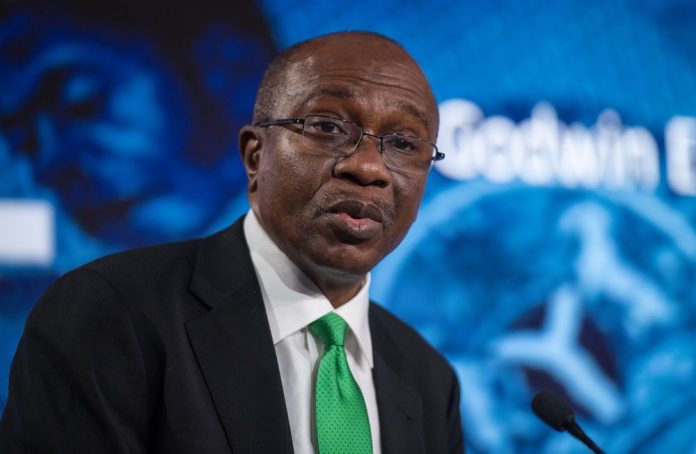With the Monetary Policy Committee (MPC) of the Central Bank of Nigeria (CBN) keeping rates and other parameters unchanged at its first meeting for the year amid rising inflation and shrinking economy, analysts have said the apex bank will have to use unconventional tools to revive growth in the country.
Members of the committee had unanimously voted to retain MPR at 11.50 per cent while the asymmetric corridor was left at +100/-700 basis points around the MPR. The Cash Reserve Requirement (CRR) was left at 27.5 per cent and Liquidity Ratio was also kept at 30 per
cent.
Commenting on the decision of the MPC to maintain status quo, senior research analyst at FXTM, Lukman Otunuga said, “It is no surprise that the Central Bank of Nigeria (CBN) has left interest rates unchanged at 11.5 per cent.
“While central banks across the globe have embraced
looser monetary policy to defend their respective
economies against COVID-19, the CBN simply does not
have enough breathing room. Given how inflation
remains well above the 6-9% target, a rate cut could fuel
inflationary pressures – ultimately impacting economic
growth.
“But this is where things get tricky. Activity in Africa’s
largest economy has displayed signs of improvement
thanks to the easing lockdown restrictions and rising oil
prices. However, the second wave of infections and
ongoing uncertainty over the vaccine rollout threatens to
sabotage any meaningful recovery. With the coronavirus
pandemic already derailing the CBN from its price
stability mandate, the bank is likely to adopt a wait-and-
see approach for the foreseeable future.
“Should the growth outlook deteriorate due to COVID-
19, the CBN may end up enforcing unconventional tools
in an attempt to revive growth. These include tweaking
the loan to deposit ratio, liquidity ratio, and cash reserve
ratio,” he pointed out.
“The monetary policy committee once again expressed
concern about rising inflation. Indeed, inflation is expected to remain elevated due to supply disruptions created by COVID-19, tightening border restrictions, the increase in VAT, and removal of fuel subsidy. With the
trajectory on inflation pointing north, interest rates are
unlikely to move below 11.5 per cent anytime soon.
Meanwhile, analysts at United Capital Plc said the MPC
leaves all policy rates unchanged with the intention to
give more room for the previous rate cut to run its full course on the economy.
“The above decision was made in light of the intensifying second wave of coronavirus infection, vaccine
developments and the recent rally in oil prices despite sharp rising inflation and exchange rate divergence they stressed.
On implication of key variables, they stated that demand
for short term bills will persist while investors continue to
systematically exit long dated bonds, interest in the
equities market will be sustained, unrelenting pressure
on general price level will continue, although recent
reopening of the border may slow down the pace of
increase and recovery in the local economy will be
sustained with fourth quarter (Q4), 2020 GDP expected
to show further improve.
Also, analysts at Cowry Asset Management Limited said,
“The unanimous vote by all members of the MPC to
leave all key rates unchanged, which was in line with our
expectation, was on the back of its optimistic outlook on
inflation rate to moderate, stable crude oil prices and
increase vaccination against coronavirus.”
Nevertheless, Cowry noted that, the possibility of the
MPC to continue to pursue expansionary policy,
especially through the use of MPR, may have been
constrained by the level of liquidity in the financial
system and its attendant adverse effects on exchange
and inflation rates; hence, its new directional approach
to systematically synchronise monetary and fiscal policies
accommodation through developmental finance
initiatives.
Meanwhile, assistant general secretary of the National
Union of Textile, Garment and Tailoring Workers of
Nigeria (NUTGTWN), Comrade Emeka Nkwoala has called
on federal government not to consider the idea of shutting down the economy.
Nkwoala, who made this known in an interview said, the economy has yet to recover from the previous lockdown, urging government to pay more attention to enforcement of COVID-19 protocol, instead of relocking the economy.
We all can see how the effects of the first lockdown have not be resolved. So, government should not toy with the idea to lockdown the economy for the second time.
“The only thing needed is for enforcement of the protocols, that move will help to curb the spread.
Everyone should strictly adhere to Covid-19 protocols because coronavirus pandemic is real and it has to be watch against,” he pointed out.


